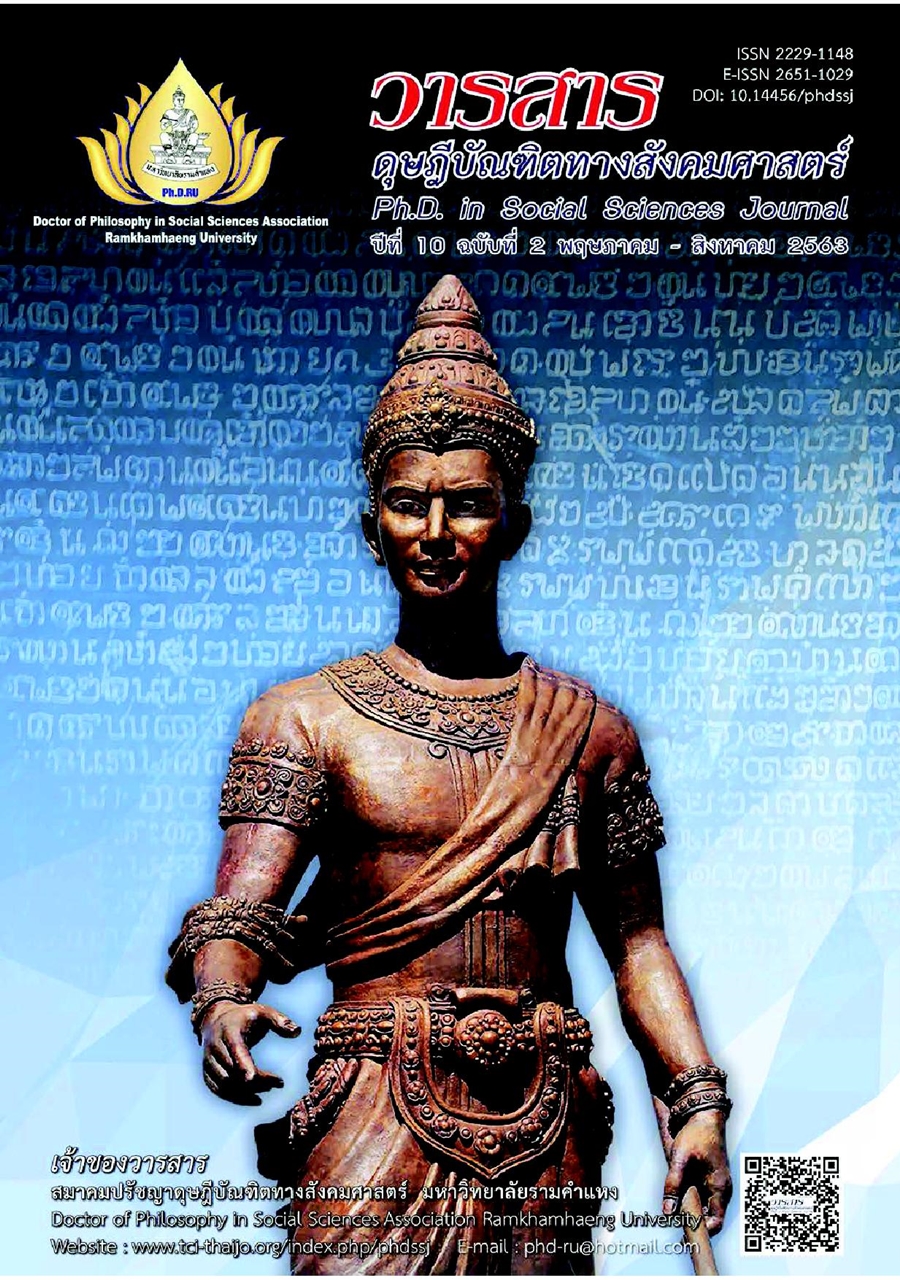Legal Principles for Seeking Evidences on Drugs-Related Crime by Undercover Method
Main Article Content
Abstract
This research article has the objectives to study concept and theory of legal principles for seeking evidences on drugs-related crime by undercover which is a qualitative research conducting on documents and analyzing the data by content analysis technic.
The result found that the techniques of special investigation by undercover to suppress the wrongdoers on drugs-related are governed by the Drug Case Procedure Act, B.E. 2550 specifying the procedures for the undercover and drugs possession under the control in section 7 and section 8. The Narcotics Control Act, B.E. 2519, (Amendment No. 4) B.E. 2545 provides the wiretapping action in section 14. An analysis of effects of power exercised by the officers on drugs-related cases found that the power of the officers performing their duties on drug-related cases affecting the rights and freedom of citizen is an exception or a restriction of citizen’s rights and freedom under the Constitution of the Kingdom of Thailand B.E. 2560 in order for the public sector and the officers to be able to maintain the public good order, to control crimes and to prevent and suppress drugs. Thus, the public sector can exercise their powers which effect on rights and freedom of citizen only when situations or facts as provided by laws to the wrongdoers on drugs-related happened. In the other hand, for those other general people, the measures on drugs-related are ineffective since they will be protected by the constitutional law. Violation of law for the protection of human rights and freedom could lead to legal action and punishment.
Article Details
Academic articles, research articles, and book reviews in the Ph.D. in Social Sciences Journal are author’s opinions, and not the publisher’s, and is not the responsibility of the Ph.D. in Social Sciences Journal Philosophy Association, Ramkhamhaeng University. (In the case that research is done on human, the researcher has to be trained in Ethics for Doing Research on Human Training and has to produce the evidence of the training).
References
Constitution of The Kingdom of Thailand, A.D. (2017). Gazette, 134(40 A), 1-90. [In Thai]
Jumpa, M. (2004). Explanation of the Constitution of the Kingdom of Thailand (1997). Nititham. [In Thai]
Luechai, K. (1980). Witness. Ruenkaew Printing. [In Thai]
Nanakorn, K. (1985). Thai criminal procedure: Mismatched law principles and practices. Thammasat Law Journal, 15(3), 1-17. [In Thai]
Rathamarit, U., Suriya, N., & Singkaneti, B. (2001). The claim of human dignity or the exercise of personal rights and liberties in accordance with Article 28 of the Constitution of the Kingdom of Thailand A.D. 1997. Nana Printing. [In Thai]
Rattanakorn, S. (2002). Explanation of laws of witness characteristics. Niti Bannakan [In Thai]
Singkaneti, B. (2000). Fundamental principles of rights, freedoms and human dignity according to the new Constitution. Winyuchon. [In Thai]


